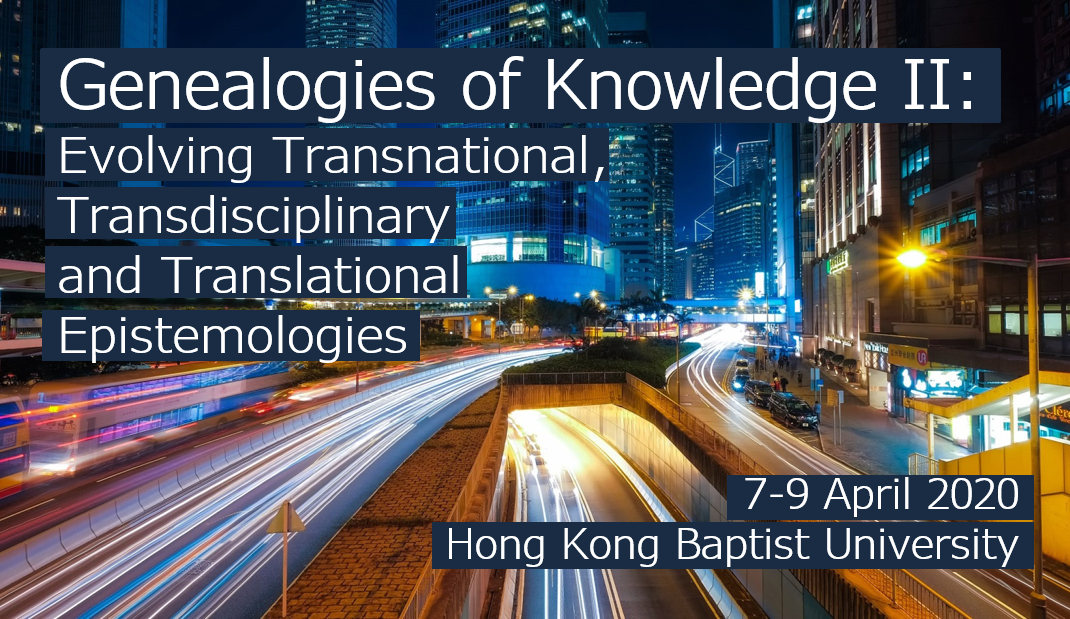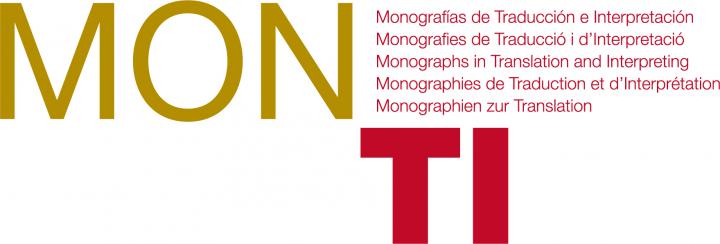An international conference hosted by the
Centre for Translation and the Department of Translation, Interpreting and Intercultural Studies,
Hong Kong Baptist University, Hong Kong
In collaboration with the
Genealogies of Knowledge Project, University of Manchester, UK
7-9 April 2020
CONFERENCE THEME KEYNOTE SPEAKERS
VENUE IMPORTANT DATES OPEN PANELS
Work Practices as Politics
Convenor: Christina Delistathi, University of Westminster, UK
This panel aims to explore how the working practices of translators underpin the construction of validated knowledge. Existing scholarship has examined literary and non-literary translator practices in both commercial and non-commercial contexts (Olohan 2017; Mossop 2006), using an array of theoretical frameworks such as practice theory, Bourdieu’s sociological approach and Luhmann’s social theory. These studies have been valuable in positioning translators within a matrix of relations and socio-political concerns, but have not explored the relationship between work practices and validated knowledge. Research on expertise, on the other hand, tends to focus on socio-cognitive abilities and skills (Göpferich 2013), while the role of work practices in the formation of expertise has received little attention. It is clear, however, that adhering or appearing to adhere to work practices valued as precise, fitting or necessary promotes the legitimization of an interpretation and the valorization of a translation as a truthful rendering of an original. In this respect, work practices also reflect broader political concerns.
Starting with Foucault’s hypothesis that “each society has its regime of truth, its general ‘politics of truth’”, which incorporates “techniques and procedures [that are] accorded value in the acquisition of truth” (1994:131), work practices may be conceived as acts through which power relations and value systems manifest themselves. They include the organization of workflow and the relationships between different agents, as well as the specification of necessary competences and uses of equipment and materials. Practices regulate the conduct of translators, whether professional or non-professional, and thus support the construction of what Bourdieu terms “socially appropriate discourse” (1977:646). Approaching work practices from this perspective may reveal how social structures contribute to the construction of legitimate knowledge, how value systems are reflected in work practices and how work practices construct and maintain identities.
This panel seeks to address the following questions, among others, in contemporary or historical contexts, within dominant or subaltern groups and across a range of movements, media and disciplinary areas:
- How may work practices function as gate-keeping mechanisms which defend, protect and preserve knowledge within a group?
- How may such practices restrict translation processes or exclude actors from engaging in translation?
- How are work practices instrumental in the construction of the notion of expertise in translation and how may the notion of expertise restrict and regulate work practices?
- How are new work practices accorded value in a society or social group and how do they come to co-exist with or supersede existing ones?
- How do work practices assist the construction of the persona of the competent, proficient or professional translator?
- How does (apparent) adherence to work practices evaluated as rigorous, appropriate or essential support the legitimization of a translation as a truthful rendering of an original?
- How do work practices and their organization relate and respond to power struggles as well as political agendas, priorities and the dynamics of specific contexts?
References
Bourdieu, Pierre (1977) ‘The Economics of Linguistic Exchanges’, Social Science Information 16(6): 645-668.
Foucault, Michel (1994) ‘Truth and Power’, in James Faubion (ed.) Michel Foucault: Power – Essential works of Foucault 1954-1984, Volume 3, London: Penguin, 111-133.
Göpferich, Susanne (2013) ‘Translation Competence: Explaining development and stagnation from a dynamic systems perspective’, Target 25(1): 61–76.
Mossop, Brian (2006) ‘From Culture to Business: Federal government translation in Canada’, The Translator 12(1): 1–28.
Olohan, Maeve (2017) ‘Knowing in Translation Practice: A practice-theoretical perspective’, Translation Spaces 6(1): 160–181.
Panel Convenor
Panel presentations
- Work Practices and the Construction of Truth, Christina Delistathi
- Sabotaging Neutrality: The (In)visible Work of Conference Interpreters, Irem Ayan
- Changing Configurations of the Practice of Translating, Maeve Olohan



